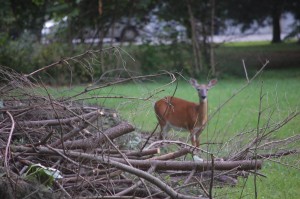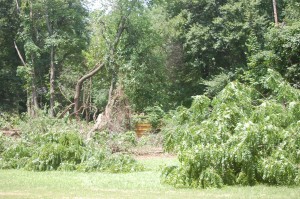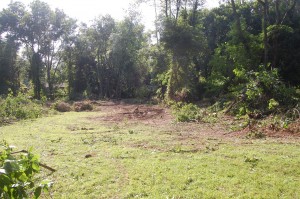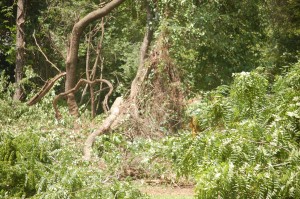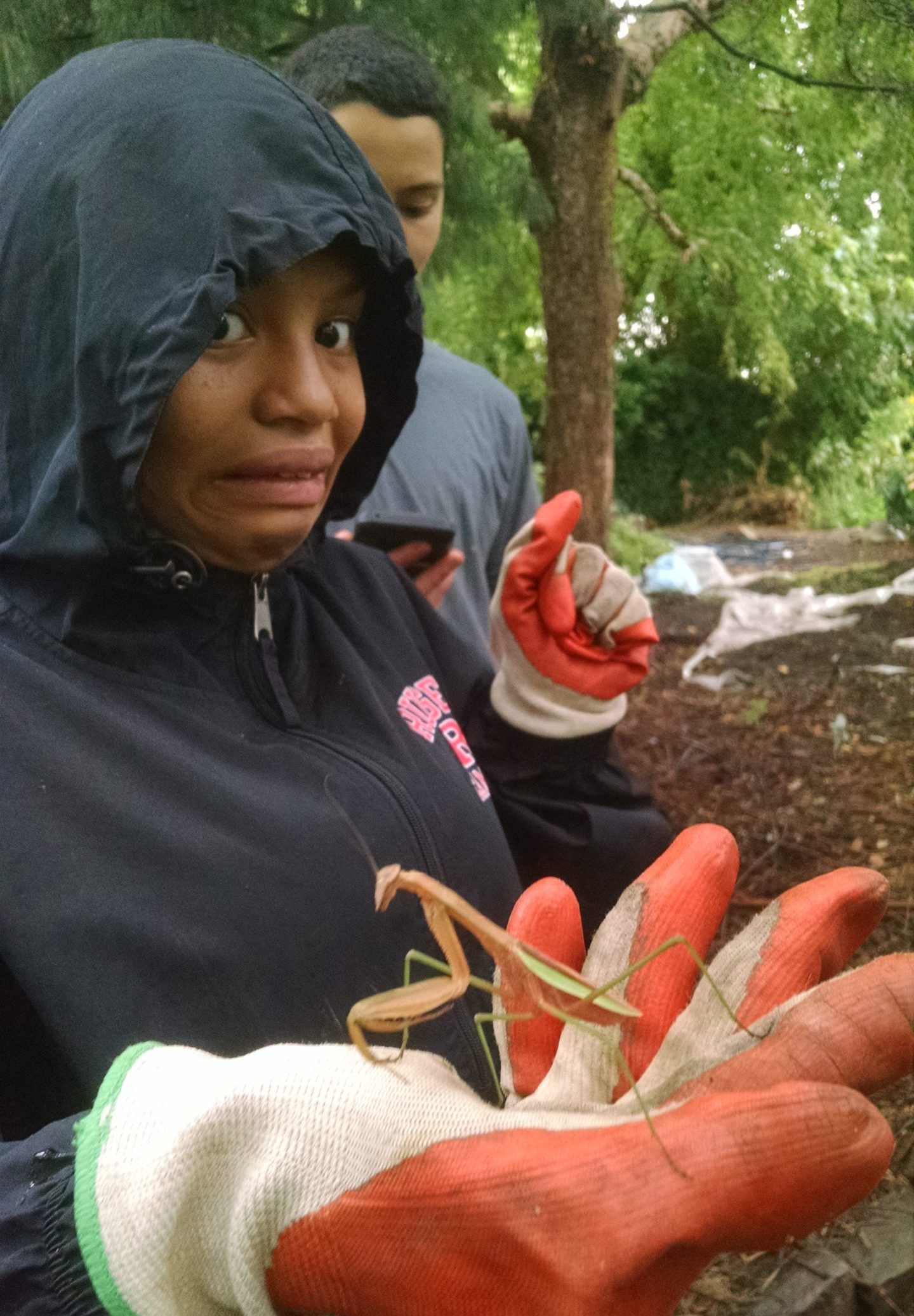July 2014: Message from the President
Greetings from Camden City on this hot July day!
I’m actually not sitting in Camden; I’m sitting in my kitchen, in Cherry Hill, looking out my window at a scene of destruction, destruction of a beautiful field, destruction of a habitat for deer, hawks, groundhogs, wild turkeys and any number of birds and the destruction/serious renovation of the beautiful gardens we’ve built up over the last 28 years. What happened? What happened was, in a sense, an exercise in the freedom that we celebrate in the USA during this month. It is a freedom that we put on the highest rung of the ladder of what we hold dear to our hearts. I wonder if we understand our freedom rightly.
For the last 28 years we have lived in this house with no fences between us and the open field behind us. On the far side of the field is a copse of trees that is home to all kinds of wildlife. On the other side of those trees stands a house, lived in for decades by the same couple. They put up no fences, and so all their neighbors enjoyed unencumbered access to a lively, diverse ecosystem, one that they deeply respected. In our particular case, without a fence to stop us and with the permission of the owners, our gardens soon overtook the invisible lines of our surveyed property. Well, as often happens, the couple died and their sons sold the property to the new owner who made it clear from day one that he was going to fence in the property line of his 2.6 acre property. We went out to meet him as he walked the perimeter of his new property. He told us of his plans. We told him the story of the neighborhood’s appreciation of the open space, the use the field was put to for impromptu softball games of our children and grandchildren, and of the variety of wildlife that called the field home. His response was simple: “Well, they’ll have to make other arrangements.” When asked why a fence was important, he responded: “I need to protect my assets.” From what? From whom?
The next day, 20 men showed up and began to cut down the trees on the property. It was a Saturday, a day when the township offices are closed. In Cherry Hill you need permits to take down trees, and if you want over three trees taken down, you have to appear before the planning commission. There were no permits, and no planning commission hearings. That day 28 trees came down, most more than 50 feet tall and 100+ years old. As the destruction commenced, a mother hawk screamed as the tree in which her nesting young sat came crashing down. Two new born fawns that rest in this copse of trees during daytime hours ran to a neighbor’s yard, looking bewildered as to what to do next. The resident groundhog family ran for their lives as the front loader approached the only home they knew. It was a like a scene from the movie Avatar, when the forests were being cleared and the animals were running for their lives. A neighbor must have called the township, finding a lone person who came in on her day off. The next thing we knew the police arrived, and the cutting stopped and the men left. That was over two weeks ago. The destruction remains, an ecosystem severely damaged. The goal of this destruction is to impose the new owner’s vision of what a “yard” should look like on the ecosystem he found on this newly appropriated piece of earth: a fence, chemically-sustained green grass, very few trees and a 2.6 acre fenced in area for a dog to run.
Does this fellow have the right to put in a fence? Of course. Was our backyard garden bed on his property? Yes. Am I simply working out sour grapes here because we finally got “caught” in our illegal occupation of someone else’s property? Perhaps I am. This fellow is exercising his freedom to do what he wanted to do with his property. Isn’t this a sacred American right? Isn’t this a quintessentially American attitude? I ask you to consider that while, yes, we have property rights in this country and I’m not advocating that we do away with them, are those rights to be like a trump card against all other values at stake? In Cherry Hill, you are not allowed to cut trees down indiscriminately. You have to have a plan to re-mediate what you take down. The same biomass must remain that is removed. What this suggests to me, and convinced Cherry Hill government officials, is that property rights are not sacrosanct. There are values that can limit, if not trump, property rights. One of those values is a stable and sustainable ecosystem that cannot be overlooked simply because “I want to protect my assets.”
Freedom is a precious thing. The freedom to choose to live life in the way we want to live it is precious. But we also live in a community that is composed not only of other human beings and their needs and rights, but also in a community that includes all other living things and the systems on which all life depends. To exercise my freedom without attention to the impact of my actions on all those around me is one definition of selfcenteredness, and it rests on the illusion that I am alone on this planet as far as the needs and concerns of others, both human and not human, are involved. It is an illusion that is quite dangerous, that leads to the destruction of habitats, to whole species, to ways of life for human communities and to beautiful scenes of garden and forest and wildlife.
A fence will go in. We’ll rebuild our garden beds once again. But the wildlife and the old trees have had to make “other arrangements” so that “assets can be protected.” I invite you to join me in examining our attitudes toward property, toward the land that we own, toward the animals that make their homes on that land. What does my freedom mean in that context? What does it mean to “own” the land? We need a more expansive way to think about freedom, property, ownership if we want a sustainable way of living on this earth. We are not alone, but we are alone in our capacity to destroy and disrupt. It is a critical examination upon which we must embark now. I hope you’ll join me.
Peace,
Mark Doorley, Ph.D.
President, Board of Trustees
CFET

